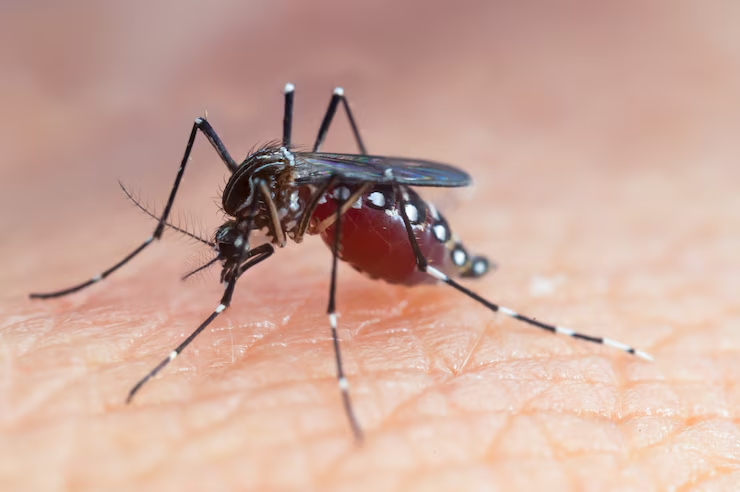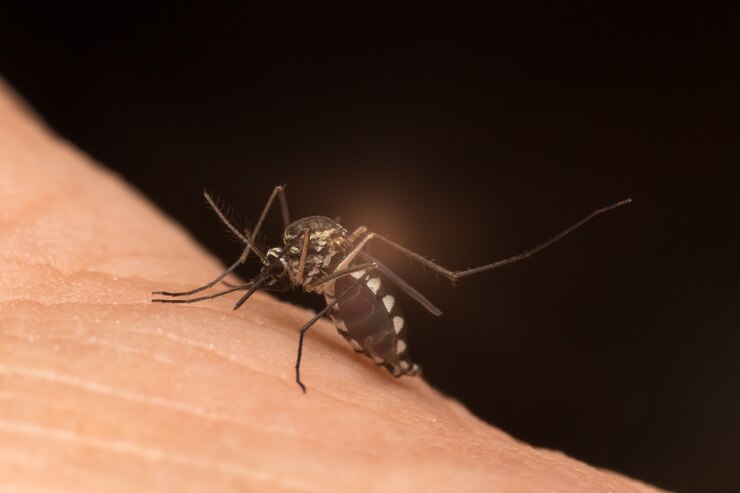DENGUE

The dengue virus causes dengue fever, and Aedes mosquitoes transmit it, more specifically Aedes aegypti.
Severe dengue (also known as dengue hemorrhagic fever) can cause severe bleeding, organ damage, and plasma leakage. If not managed properly, it can lead to dengue shock syndrome, which may be fatal.
There is no specific antiviral treatment for dengue. Supportive care should be provided, including the administration of analgesics for relief of symptoms, maintenance of fluid balance, and regular monitoring for complications.
SYMPTOMS OF
DENGUE

High temperature
Join & muscle pain
Serious head pain
Sharp pain behind the eyes
MALARIA

Plasmodium parasites are responsible for causing malaria; they are usually transmitted through infected anopheles mosquitos bit.
Severe malaria can cause serious health issues such as cerebral malaria (affecting the brain), anemia due to the destruction of red blood cells, and damage to vital organs like the kidneys and liver. It can be fatal if not treated promptly.
Malaria is treated with antimalarial drugs, which depend on the type of Plasmodium parasite, the severity of symptoms, and the general state of health of the patient.
Nausea & Vomiting
Night sweats
SYMPTOMS OF
MALARIA

Severe headache & migraine
Aching body
TYPHOID

Typhoid fever results from infection with Salmonella Typhi bacteria, which are often transferred through contaminated food and water.
Untreated typhoid fever may cause severe complications such as intestinal perforation, extreme dehydration, and organ failure that are life-threatening.
Antibiotics and other supportive treatments are used for typhoid fever; early diagnosis and prompt treatment could prevent the illness from getting worse while providing adequate supportive care, including hydration and nutrition, are also important.
SYMPTOMS OF
TYPHOID

Stomachache
Red spots on skin
Diarrhea or Constipation
Weakness
WHY TO CHOOSE US ?
Advanced Diagnostic Facilities
Effective treatment of infectious diseases requires accurate diagnosis. AD Hospital possesses advanced laboratory facilities capable of rapidly and accurately diagnosing dengue fever, malaria, and typhoid fever, thus enabling prompt management decisions.
The comprehensive care
From initial diagnosis to recovery, the hospital provides comprehensive care. This encompasses progressive diagnostic capabilities, inpatient services, and follow-up visits that track patients’ conditions and address possible complications.
State-of-the-Art Infrastructure
The AD Hospital is equipped with modern medical facilities and equipment. This allows for accurate diagnoses; thus, effective treatments are provided for patients, and close monitoring is a prerequisite for dealing with diseases such as dengue, malaria.
Patient-centered approach
This involves individualized attention toward every patient, ensuring that all their needs are met by doing everything possible for them. The health staff do not forget about older adults who are unable to defend themselves.
Compelling Records
Successful treatment of patients suffering from dengue fever, malaria, and typhoid has become strong evidence of the facilities’ quality. Favorable patient outcomes and testimonials testify to the hospital’s high level of care given to patients.
